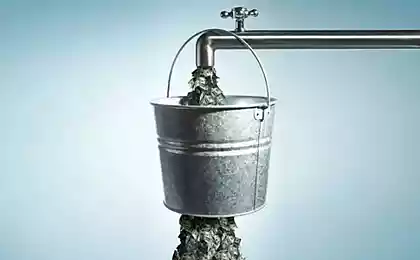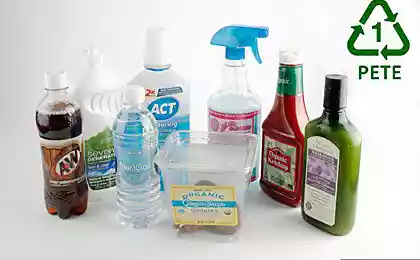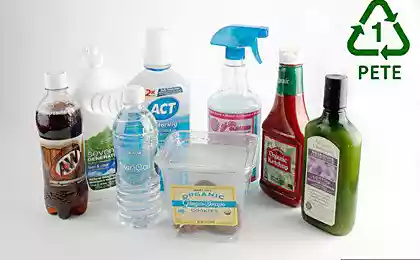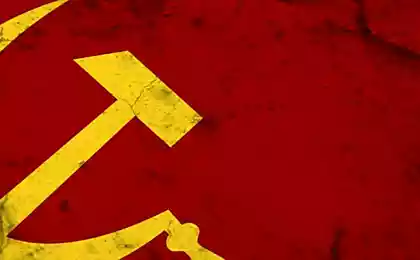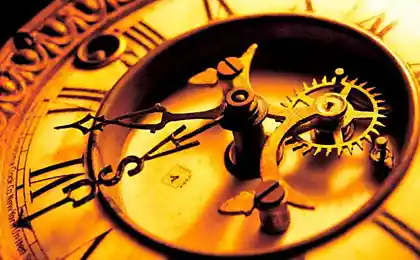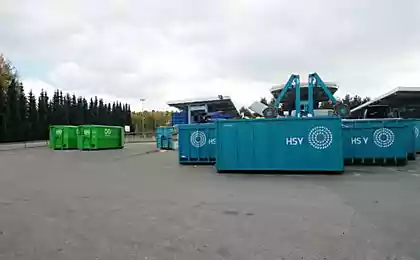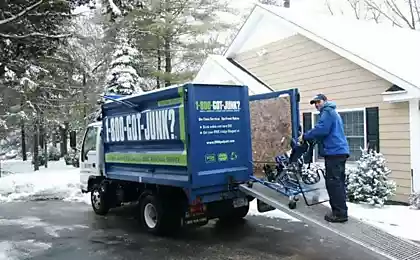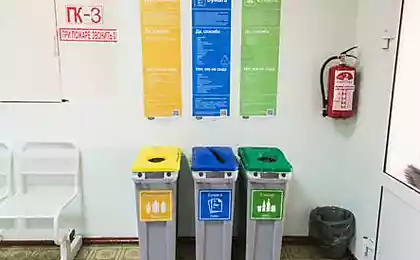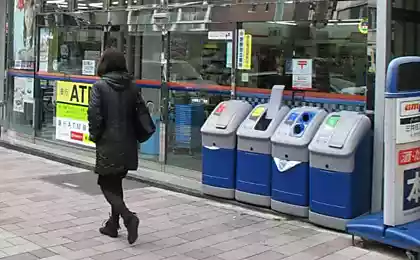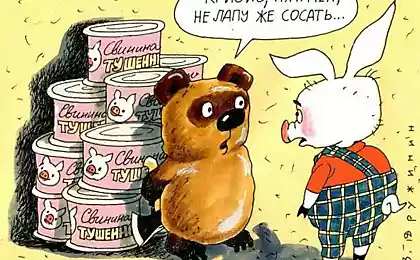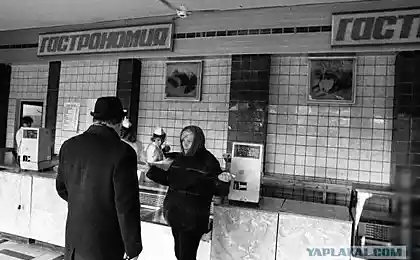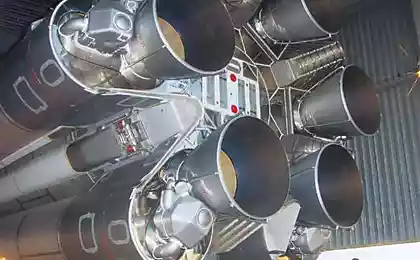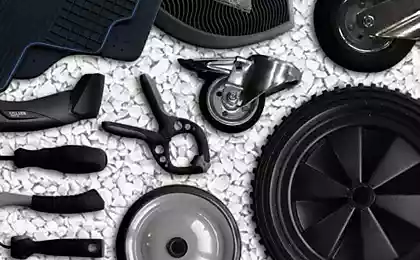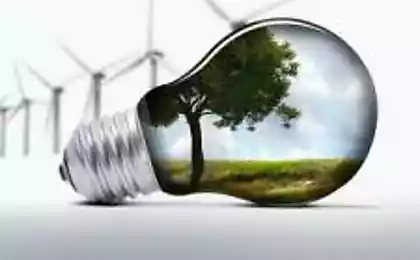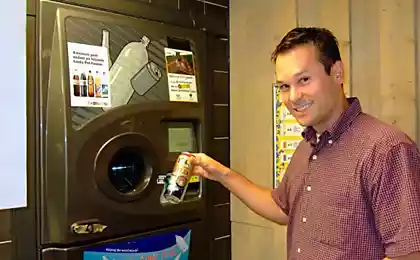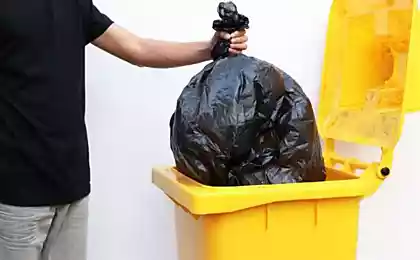470
As the waste is disposed of in the economy of a full cycle
The concept of "circular economy", " ie economy of a full cycle is when all the materials are fully utilized and recycled — is becoming increasingly valuable and becomes the most important goal in the world facing such critical issues as essentiality and the depletion of natural resources.
The European Union completes the ambitious strategy of a circular economy, and the government of Finland, meanwhile, gives priority to investment in the promotion of circular economy among the new major projects.
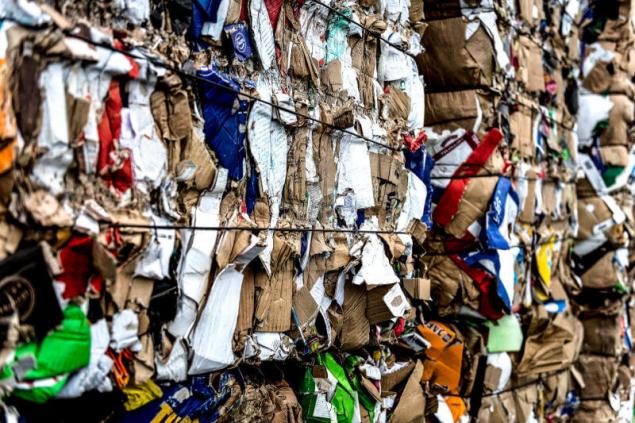
As for the traditional methods of processing, Finnish families have long known what to do with the bottles from beverages and paper.
"To build a circular economy requires much more than just waste disposal. This means that there will be radical changes, starting from raw material selection, product development and new concepts of service to the more extensive use of by-products of one production as raw material for another," explains Marie Panzer, Director of environmental sustainability in the Finnish innovation Fund Sitra.
Efficiency of materials and energy in industry
"The pulp and paper industry of Finland is a Prime example of large-scale industry, where almost all materials and by-products from wood processing are already used for the production of many types of products or for the generation of renewable energy," says Panzer.
The Finnish firm quickly find a new application of innovative biomaterials from wood, thereby improving the use of biomass derived from sustainably managed forests of Finland, where every year more wood grows than is harvested.
Improving the use of raw materials, as a rule, goes hand in hand with energy savings. Being a country with a cold climate, do not have their own fossil fuel resources, Finland has long recognized the need to improve energy efficiency in industry and residential buildings.
Given the need to reduce emissions and mitigating global warming, the spread of such practices is now more important than ever.
In addition to building a sustainable carbon-neutral bio-economy by rationalizing the use of forest biomass Finland also actively implements the concept of circular economy in other key areas.
Panzer, explains what should be the mechanisms and electronic equipment to them or their various materials and components can be reused.
"Finnish manufacturers of machines for forestry Ponsse first adopted the concept of modular products, starting to collect cars from the multi-purpose parts that can be easily removed and sent for maintenance and reuse, even if only through their international sales network," she adds.
Everything is back to normal
Households are also involved in the process of recycling. An important place in people's lives is a recycling and reuse of goods and materials, Finns increasingly make a choice in favor of renting, sharing and second-hand goods, which is very economical.
As for the traditional methods of processing, Finnish families have long known what to do with the bottles from beverages and paper. In the future will be improved collection, sorting and recycling other materials, suitable for reuse, such as plastic, metals and textiles.
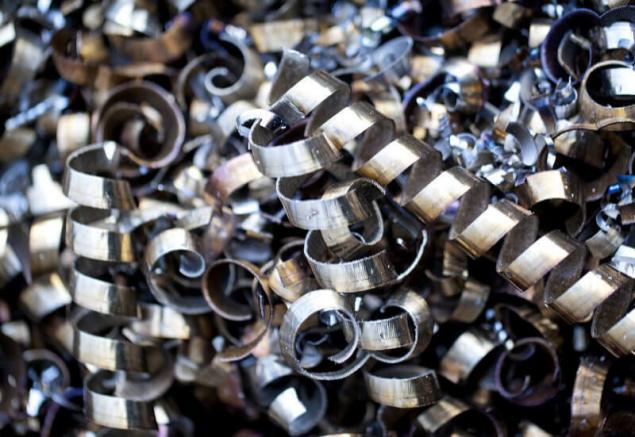
In the future will be improved collection, sorting and recycling other materials, suitable for reuse, such as plastic, metals and textiles.
Meanwhile, the Finnish manufacturers and distributors of food products are committed to a drastic reduction in food waste.Finnish energy company St1 is a pioneer in biofuel production from residues of the food industry.
At the farm, explains, Panzar, processing of nutrients needed for growing crops, is another important goal for Finland at least, because the excess nutrients that flow from cultivated land, exacerbate the environmental problems in the Baltic sea.
"Instead of imported chemical fertilizers we encourage farmers to use their fields processed organic waste, or included in the cultivation cycles of culture, linking nutrients," she says.
Experts of Fund "Sitra" help to create an ambitious scheme for the flow of goods and materials in the Finnish economy. They assess potential savings in key sectors in billions of euros per year.
"We plan to establish close cooperation between industry, researchers, government agencies, legislative bodies and local authorities," says Panzer.
"In the course of the research work will create new business models and design modular products, in which at the outset will consider the need for easy maintenance, reusing and recycling".
New clothes from old
Worn clothing can now become a new thanks to the innovative technology developed by the technical research Centre of Finland VTT and the company Ethica in the framework of the project "textiles in the Finnish circular economy".
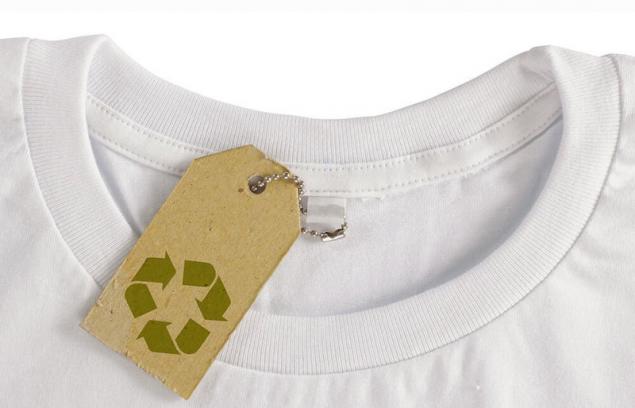
In the first stage of this demonstrative revolutionary recycling scheme in the centre of the reuse region Helsinki city select cotton clothing which contains fiber, suitable for reuse, for example one that is too worn to be sold on the second hand.
Processing specialists at Suez cut the cotton fabric into pieces and dissolved in alkali, resulting in a solution of cellulose.
Then at a disused plant for the production of viscose of this solution form a new fiber. Of these fibers the Finnish company Pure Waste produces a new knitted fabric that they sew clothes for chain stores high street fashion Seppälä.
The first new clothing created by this scheme, will go on sale in 2016, and you can find it in stores Seppälä. It will also be sold on the Internet and delivered to packing RePack, re-usable that will remove another layer of waste. Buyers can return their old clothes, and thus complete the cycle. published
P. S. And remember, only by changing their consumption — together we change the world! ©
Join us in Facebook , Vkontakte, Odnoklassniki
Source: interesno.cc/open/29000
The European Union completes the ambitious strategy of a circular economy, and the government of Finland, meanwhile, gives priority to investment in the promotion of circular economy among the new major projects.

As for the traditional methods of processing, Finnish families have long known what to do with the bottles from beverages and paper.
"To build a circular economy requires much more than just waste disposal. This means that there will be radical changes, starting from raw material selection, product development and new concepts of service to the more extensive use of by-products of one production as raw material for another," explains Marie Panzer, Director of environmental sustainability in the Finnish innovation Fund Sitra.
Efficiency of materials and energy in industry
"The pulp and paper industry of Finland is a Prime example of large-scale industry, where almost all materials and by-products from wood processing are already used for the production of many types of products or for the generation of renewable energy," says Panzer.
The Finnish firm quickly find a new application of innovative biomaterials from wood, thereby improving the use of biomass derived from sustainably managed forests of Finland, where every year more wood grows than is harvested.
Improving the use of raw materials, as a rule, goes hand in hand with energy savings. Being a country with a cold climate, do not have their own fossil fuel resources, Finland has long recognized the need to improve energy efficiency in industry and residential buildings.
Given the need to reduce emissions and mitigating global warming, the spread of such practices is now more important than ever.
In addition to building a sustainable carbon-neutral bio-economy by rationalizing the use of forest biomass Finland also actively implements the concept of circular economy in other key areas.
Panzer, explains what should be the mechanisms and electronic equipment to them or their various materials and components can be reused.
"Finnish manufacturers of machines for forestry Ponsse first adopted the concept of modular products, starting to collect cars from the multi-purpose parts that can be easily removed and sent for maintenance and reuse, even if only through their international sales network," she adds.
Everything is back to normal
Households are also involved in the process of recycling. An important place in people's lives is a recycling and reuse of goods and materials, Finns increasingly make a choice in favor of renting, sharing and second-hand goods, which is very economical.
As for the traditional methods of processing, Finnish families have long known what to do with the bottles from beverages and paper. In the future will be improved collection, sorting and recycling other materials, suitable for reuse, such as plastic, metals and textiles.

In the future will be improved collection, sorting and recycling other materials, suitable for reuse, such as plastic, metals and textiles.
Meanwhile, the Finnish manufacturers and distributors of food products are committed to a drastic reduction in food waste.Finnish energy company St1 is a pioneer in biofuel production from residues of the food industry.
At the farm, explains, Panzar, processing of nutrients needed for growing crops, is another important goal for Finland at least, because the excess nutrients that flow from cultivated land, exacerbate the environmental problems in the Baltic sea.
"Instead of imported chemical fertilizers we encourage farmers to use their fields processed organic waste, or included in the cultivation cycles of culture, linking nutrients," she says.
Experts of Fund "Sitra" help to create an ambitious scheme for the flow of goods and materials in the Finnish economy. They assess potential savings in key sectors in billions of euros per year.
"We plan to establish close cooperation between industry, researchers, government agencies, legislative bodies and local authorities," says Panzer.
"In the course of the research work will create new business models and design modular products, in which at the outset will consider the need for easy maintenance, reusing and recycling".
New clothes from old
Worn clothing can now become a new thanks to the innovative technology developed by the technical research Centre of Finland VTT and the company Ethica in the framework of the project "textiles in the Finnish circular economy".

In the first stage of this demonstrative revolutionary recycling scheme in the centre of the reuse region Helsinki city select cotton clothing which contains fiber, suitable for reuse, for example one that is too worn to be sold on the second hand.
Processing specialists at Suez cut the cotton fabric into pieces and dissolved in alkali, resulting in a solution of cellulose.
Then at a disused plant for the production of viscose of this solution form a new fiber. Of these fibers the Finnish company Pure Waste produces a new knitted fabric that they sew clothes for chain stores high street fashion Seppälä.
The first new clothing created by this scheme, will go on sale in 2016, and you can find it in stores Seppälä. It will also be sold on the Internet and delivered to packing RePack, re-usable that will remove another layer of waste. Buyers can return their old clothes, and thus complete the cycle. published
P. S. And remember, only by changing their consumption — together we change the world! ©
Join us in Facebook , Vkontakte, Odnoklassniki
Source: interesno.cc/open/29000
"Bulb Tomic — a domestic led bulb new generation
6 things in Your kitchen that are better to send to the trash
